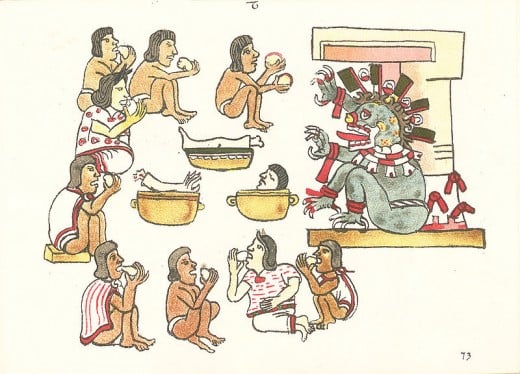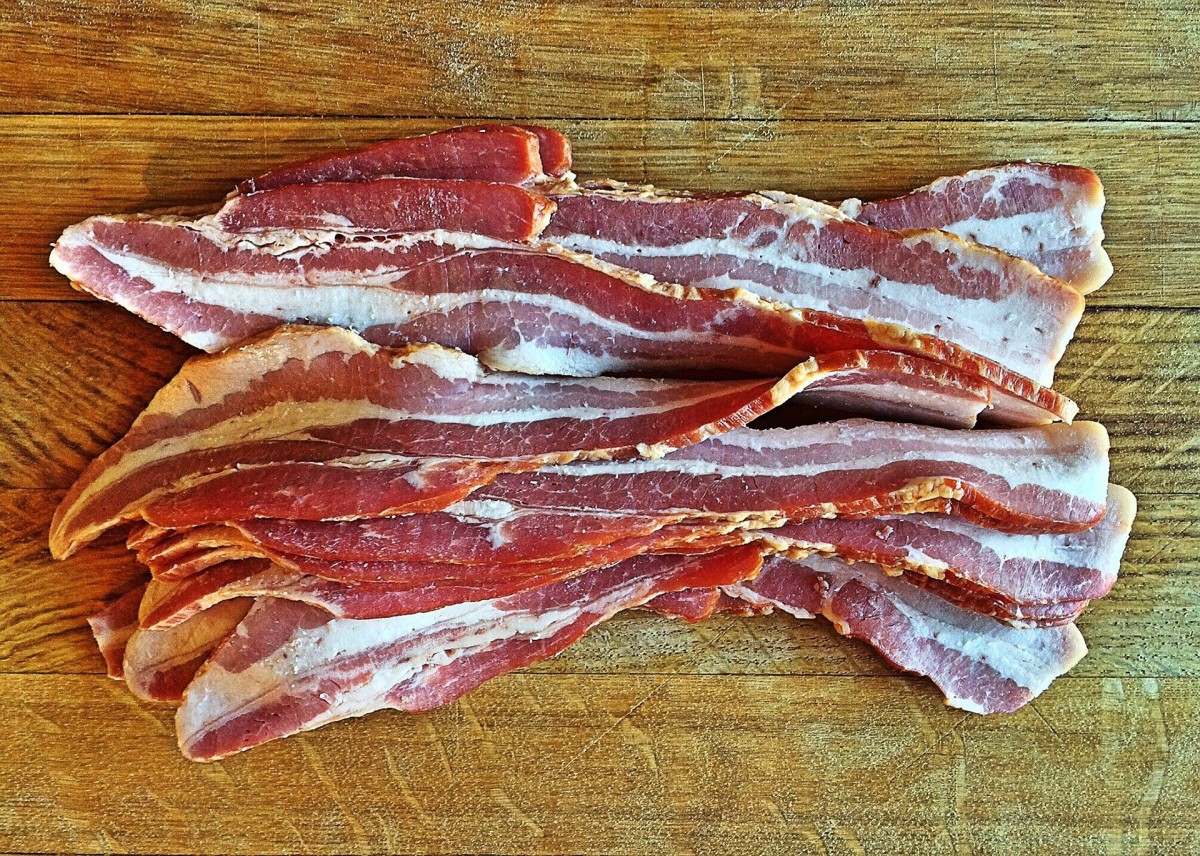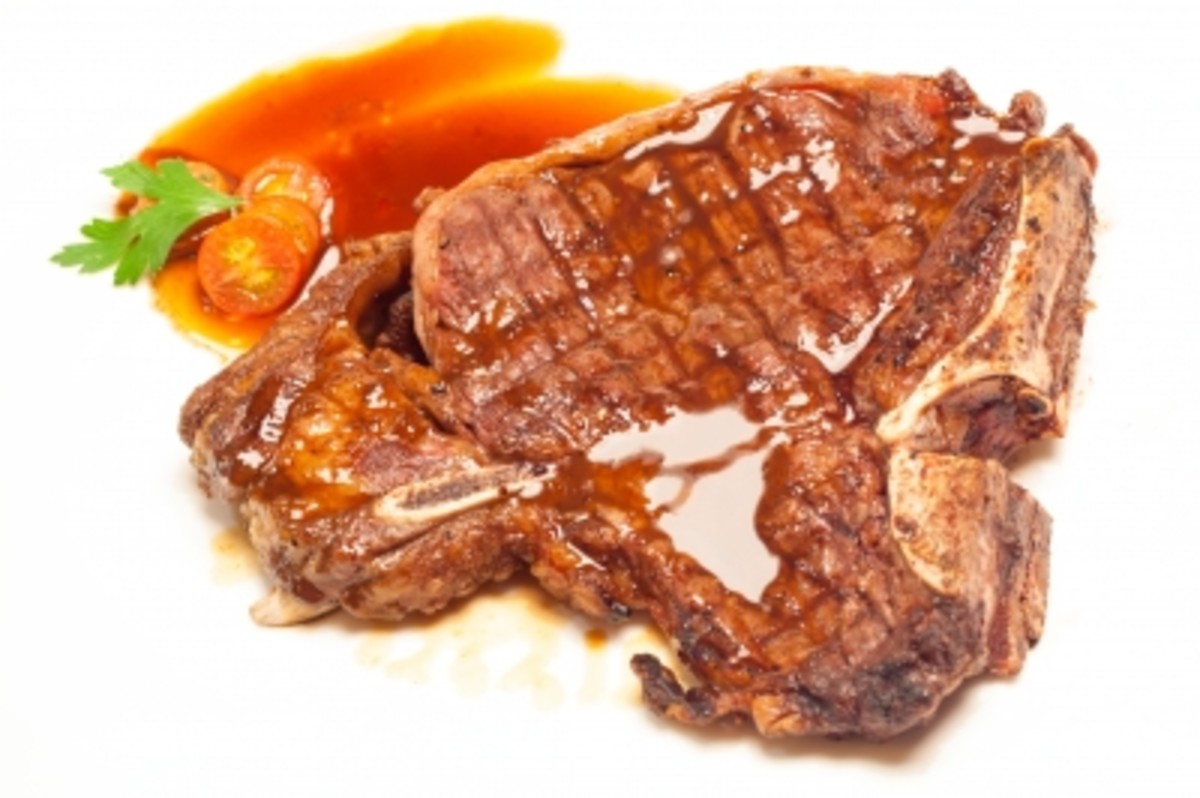- HubPages»
- Books, Literature, and Writing»
- Books & Novels»
- Fiction»
- Science Fiction & Fantasy Books
Cannibalism: The Other, "Other" White Meat

Cannibalism in Amazon
People… It’s What’s for Dinner
A change in diet can get you thinking.
Recently, my wife has made it her goal to get me to eat a variety of other things. She tells me that the amount of animal proteins I consume is out of balance and that I may be suffering because of it. So, I’ve begun to read through some of the perspective diet plans that promise a treat like a good piece of fruit or some unsalted nuts - and if we feel really naughty we can have some unsweetened dark chocolate.
These options can make a food lover despair. When I think of all this, my mind drifts to the concept of cannibalism. Yes, cannibalism: when a human being decides that he wants to eat "people meat". It’s the Donner Family dinner special. It’s when you are craving lady fingers for dessert. It’s when you have the heart to have a heart. It’s when you have the stomach for more stomach. It’s when you can’t quite decide what you want to have fava beans and a nice Chianti with - and remember that there is that one thing.
Picture it. You’re having a nice party and for munchies you’ve made a great salsa to go with those little soylent green crackers. It’s good to have people over to have people.
So much of the literature that we’re now exposed to involves the consumption of human beings.
Really! Just take a look. The big trend in horror is bent in the direction of zombies and vampires. One monster eats people’s flesh while the other is content on draining their blood. The top two horror shows on cable are The Walking Dead and True Blood. On top of that we have a long history of Buffy the Vampire Slayer, The Vampire Diaries, and the often lamented Twilight series (for women who have a thing for stalkers, let alone vampires).
We as viewers find these things terrifying as most of the time the monsters are stronger, faster, and sometimes smarter than we are. At least the vampires are. The zombies on the other hand, while not being smarter have the advantage of relentlessness and large numbers. Both kinds of monsters are focused on eating people and the fluids that make them run like a well-oiled machine.
But that’s the supernatural aspect. We have my favorite musical to consider: Sweeney Todd, the Demon Barber of Fleet Street. This Penny Dreadful story which is traditionally about a barber that went insane and went on a long time murder spree by killing many of his customers and working with his land lady partner to dispose of the bodies by cooking them in meat pies has gained popularity through its movies and musical shows.
Yummy.
We also have another of my favorites involving all of the stories starring the character of Hannibal Lechter, the antihero created by Thomas Harris. While most of us have enjoyed the movie series that were brought to light through the performance of Sir Anthony Hopkins (not to take anything away from Brian Cox's performance as Hannibal Lechter in Man Hunter), I’ve found that the new series, Hannibal, on NBC is easily the more terrifying when it comes to the subtlety of getting questionable meat from a dinner host.
Lechter, in his mission to rid the world of the rude, has not only eaten the organs of his victims (heart, lungs, liver, intestines, brain, and kidneys – as well as sweetbreads) but has served many of these to unwitting guests at dinner parties. Why? Many reasons can be drawn, but the best suggestion came from Hannibal, himself, in that the killer (Hannibal) feels that his victims don’t deserve to have their organs any longer. Whether this is the truth or a blind toward the FBI is not known.
It makes you think twice before eating steak and suspicious organs pie at Hannibal’s house.

Cannibalism in the Media
Series
| Eater
| Food
|
|---|---|---|
The Walking Dead
| Zombies
| Living People
|
True Blood
| Vampires
| Blood
|
Hannibal
| Hannibal Lechter
| Rude People
|
Sweeney Todd: The Demon Barber of Fleet Street
| The People of London
| The People of London
|
Why Cannibalism?
Cannibalism is not a recreational food choice. You can’t make the decision that when you’re peckish instead of Cool Ranch Doritos you’ll have some grilled human tenderloin.
While cannibalism is not a common practice, it typically has been recorded as a choice of last resort. Historical accounts cite occurrences of the 1972 crash of the Argentinian soccer team’s plane crash in the Alive! story. This was where the survivors of a plane crash in the Andes Mountains were forced to eat the bodies of their fallen comrades until they were rescued.
Other cases during the World War Two siege of Leningrad that was from 1941 to 1944 report the consumption of human bodies that were cut, cooked, and eaten.
Cannibalism is still a common practice in the Korowai tribe in New Guinea. There have been reports that should a person be convicted of the crime of being a khakhua (secret witch doctor) the guilty party is tried, tortured, executed, and then eaten. The brain is eaten while still warm with body temperature.
The big question that I’m sure all of you are thinking is “Is cannibalism bad for you?”
There are mixed reports on this. The commonly held belief is it's much like the theory of mad cow disease, the common and regular consumption of eating your own species is bad for you. There is some amount of proof that ingesting brain matter can be detrimental in spreading prion diseases and possibly start a kuru epidemic – which is a form of encephalopathy.
There is, however, some support that people who have ingested flesh (not organs) would probably not succumb to the kuru virus as that is passed by eating the brain tissue. Essentially, if you stick to the steaks and chops of another person that while a thigh muscle may be tougher than eating the same part of a cow, you would not suffer from it.
Indeed, were that the case, the survivors of the Alive! story would certainly have suffered from detrimental effects from their last resort diet plans.
The thing you should remember is that cannibalism, itself, is not illegal. What is illegal is the treatment of human bodies and killing of another human. You can’t just get a human leg from the local butcher.

Do you think you could eat a human being?
Final Words or When you REALLY need the protein
We are beings who live in faith.
I’m not talking about religion. The faith people have in their religion comes more under the guise of a philosophy where we build our spiritual lives. It’s a matter of metaphysics. No, the faith I speak of is the type of how we live and things we just take for granted.
For example, before the advent of Monsanto produced GMO’s (Genetically Modified Organisms) we could go to a store and see an apple, buy it, eat it, and know we just ate an apple grown from a seed that came from other apples. We have faith in what we buy when we see something that is evident. We know what an apple looks like and we don’t need to have watched the apple grow from where it was on an apple tree every day to know that it’s actually an apple. We also know that when we bite into this apple that it will taste like an apple. It won’t taste like an orange or a cherry; it will taste like the main ingredient of an apple pie, minus the sugar and the cinnamon.
However when we look at meat, it’s a different story altogether.
Unless we’re butchers or have had some amount of exposure to the cattle slaughtering process, it’s hard to tell the difference between what some of the more processed meat products are when we buy them. Generally I’m good at identifying chicken. I can tell by the shape of the chicken breast or thigh that the meat comes from a chicken. The shape and the color are somewhat familiar in that form. But that’s when I go to the meat section of a supermarket and look for things that haven’t been put in other things.
I have problem when we buy things that contain meat products. I’ve had to be somewhat observant over the last decade or so, as my wife is a vegan and I have to be careful of buying soup stock that’s been made from chicken or beef. And someone please tell me where on the chicken does a McNugget come from?
Do we have a one hundred percent certainty that the sausage we buy is chicken, beef, or pork? Even the casings for those sausages could be suspect. Or how about hot dogs? What kinds of kids eat human hot dogs? Fat kids, skinny kids, kids who like to bite?
Just what if… what if it’s something a bit more close to home?
When we look at the meat we eat, is it what we expect. Human flesh may be bad for us or it may not. I have a tendency to avoid certain types of chicken that are hormone fed. Why? The hormones fed in chicken (and beef for that matter) go into the meat and then go into me. It could be the reason for our country's obesity problem. It certainly may be the cause of early puberty in twelve year old girls. It's what happens when you jack up food with growth hormones.
So we try to eat organic meat. And we take for granted that the meat was not tampered with and that it comes from an animal... not from a human being.









